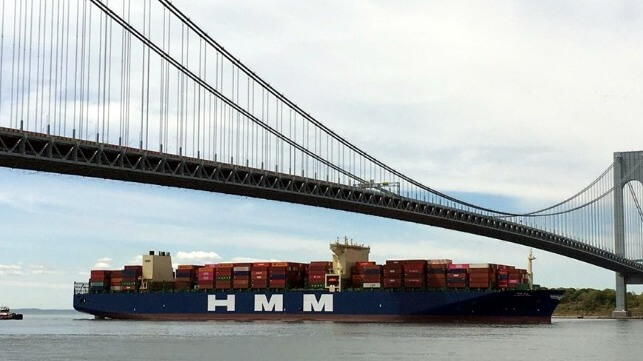Uncertainty Over HMM Sale After Banks Only Receive Four Bids

Uncertainty emerged in South Korea over the fate of HMM and the next steps the state-run banks might take after the first round of bidding only received three domestic proposals plus an offer from Germany’s Hapag-Lloyd. The stock market in South Korea responded on Tuesday by driving the price of the shipping line’s shares down by more than four percent as speculation mounted on the news that Korea’s largest corporations were not participating in the process.
Korea Development Bank and Korean Ocean Business Corporation were believed to favor one of Korea’s large conglomerates as the buyer for HMM. Leading up to the bidding process, the banks had said they would be looking for a company with sufficient capital and management ability that could help continue the growth of HMM and contribute to the country’s role in the industry. Despite the downturn in the shipping market, the banks said their financial advisory committee had said it would be possible to proceed with the sale to privatize HMM.
Reports in the Korean media are that the largest corporations such as Hyundai and POSCO did not participate in the first round which closed on Monday. In addition, SM Line which had announced it would be a bidder did not submit an offer after reviewing the prospectus. The company had said in prior interviews despite already purchasing shares of HMM on the market it would only bid up to approximately $3 billion. Consumer goods exporter, Global Sae-A, also declined to submit a proposal after registering for the bidding.
The three bids from domestic companies came from Harim, a domestic food company that is a large investor in Pan Ocean, South Korea’s largest dry bulk shipping company. Dongwon, another food producer that also has investments in logistics and port operations with the Dongwon Pusan Container Terminal submitted a proposal as did LX, a trading company involved in semiconductors, building materials, and logistics.
One of the issues is the size of the transaction. The banks hold both shares and convertible bonds and warrants. Depending on the final agreement, the conversion could drive the value of the HMM sale to between $3.9 and $4.85 billion. KDB had indicated it would convert most of the bonds but still hold a smaller position, with reports in the media saying the bank was also rumored to be seeking to limit HMM’s ability to issue dividends after the sale.
Harim Group reportedly formed a partnership with private equity investors JKL Partners, but according to the media reports none of the companies have sufficient funds to complete the proposed transaction. All the companies are smaller than the $18 billion market valuation of HMM, raising speculation that they would have to heavily leverage the transaction with debt or acquisition financing. Some speculation has been that they might seek to do it as a leveraged buyout using HMM’s cash. This could present challenges to HMM which is proceeding with its growth strategy including orders for new containerships and a new class of heavy lift vessels as well as acquiring a secondhand tanker.
The Korean banks are thought not to favor selling HMM internationally although Hapag entered a bid and has the financial strength to proceed with the transaction. Some speculation is that one of the Korean bidders might partner with Hapag as an investor for the acquisition.
The process called for the qualified bidders to undertake a due diligence and submit final proposals. A preferred bidder was to be selected for final negotiations. KDB and KOBC however had said if no qualified bidder emerged, they could amend or cancel the sale. Speculation is that the banks might suspend the process after the first round citing the market conditions in the shipping industry.
No comments:
Post a Comment